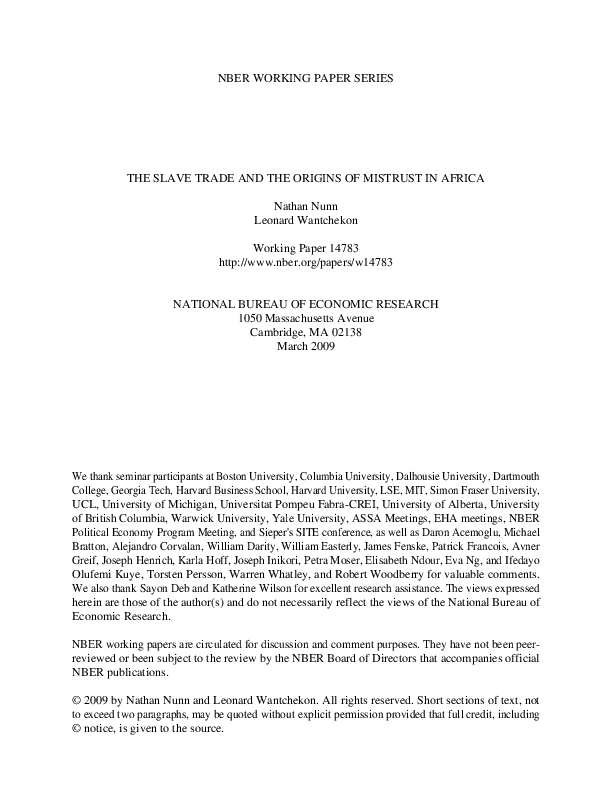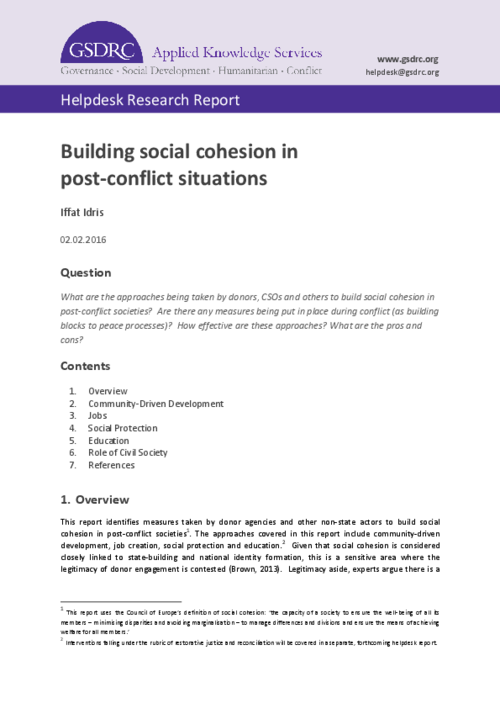The slave trade and the origins of mistrust in Africa
Key facts
Summary
We investigate the historical origins of mistrust within Africa. Combining contemporary household survey data with historic data on slave shipments, we show that individuals whose ancestors were heavily raided during the slave trade today exhibit less trust in neighbors, relatives, and their local government. We confirm that the relationship is causal by using the historic distance from the coast of a respondent's ancestors as an instrument for the intensity of the slave trade, while controlling for the individual's current distance from the coast. We undertake a number of falsification tests, all of which suggest that the necessary exclusion restriction is satisfied. Exploiting variation among individuals who live in locations different from their ancestors, we show that most of the impact of the slave trade works through factors that are internal to the individual, such as cultural norms, beliefs, and values.




